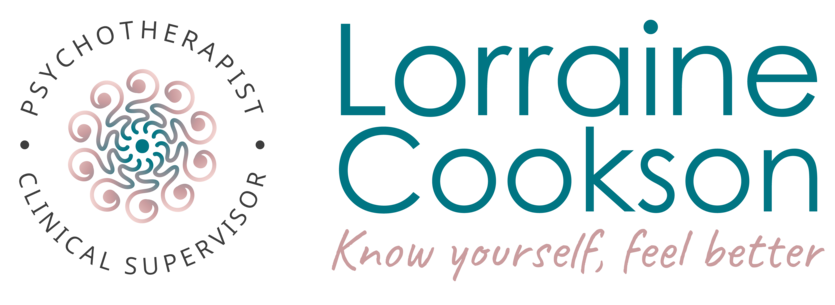Parenting When You Have ADHD

posted 24th October 2022
I see so much online about how to help children with ADHD but what if you’re the parent with it? It’s likely that you are also raising neurodivergent children which can further complicate things, and maybe you are raising them with someone who is also neurodivergent, or perhaps they aren’t and struggle to understand your perspective on things.

Parenting, it’s changed ...
Let’s start by acknowledging that parenting and the expectations that come along with it have changed so much, certainly in the last 50 years. Perhaps since the 80s parents have been increasingly expected to do more. More expectations that both parents would work and also attend to their children’s wellbeing whilst there has also been a simultaneous decline in extended families being directly involved in the raising of children.
Of course, I think it’s a good thing that parents have a much greater understanding of their children’s emotional needs but let’s not pretend that this isn’t a huge weight to carry. Before the 80s the expectation was that parents would keep their children alive and raise pliant agreeable children who spoke when spoken too. Many families did have two working parents before the 80s, but that burden of knowing where your child was much less how they were feeling was not present in the way it is now.
Now let’s imagine on top of the mindboggling burden that is parenting you also have ADHD – formally diagnosed or not, it doesn’t change how it impacts your life. I know it’s in vogue at the moment to talk about how ADHD gives us superpowers, and while it’s great if that’s your experience, it does make some things harder than they might otherwise be and I think parenting can be one of those things.

Know Yourself
You can help yourself by becoming well acquainted with your ADHD. This is not as simple as it sounds, and I think it can be useful to experiment with different things such as sensory preferences and with what self-care actually looks and feels like for you. In simple terms I think we, ADHDers, don’t always know what we need or what we like because of heavy internalised masking and people pleasing. Experimenting with your needs and preferences can be a revelation. Do you need 45 minutes alone without speaking in the morning? Do you need an afternoon nap? Do you need a 15-minute dance party after work? You can’t factor in your needs to your day or week without knowing what they are.
Along with knowing your ADHD well, I would say it is equally important to have appropriate and helpful treatment for your ADHD. For some people this may be medication, for others it may be utilising exercise or talking to a therapist. Having support in place that helps you is key in managing ADHD.
Without, really good awareness and understanding of your unique needs you are likely to run into walls and melt downs on the way to burnt out.

Time Difficulties
A very common feature of ADHD is time difficulties. ADHDers struggle with time estimation which means they can struggle to perceive the passage of time and knowing how long things take. Having strategies to cope with this is essential, try using:
- Timers
- Countdown clocks
- Schedules
- Reminders
Plan time in your routine to play with and focus on your child/ren. Use a timer to limit this time, so that you don’t become overwhelmed or expect yourself to focus on them for an unrealistic amount of time. Short, frequent, and consistent are great guiding words for this.
Create routines, habits and systems that work for you. Go for simple, easy and clear. If it’s complicated or needs more than 5 minutes to explain to someone else, it is not going to last. Yes, yes, I know it’s an amazing system and Sophie down the road swears by it, but your ADHD brain will get fed up with it. Trust me, simple, easy, and clear – that’s what you need.

Emotional Regulation
It can be very difficult to manage emotions when you have ADHD. If you are feeling dysregulated already and then having to deal with challenging behaviour from your children, it can be enough to tip you over the cliff of rage. Making sure you are regularly meeting your needs can help, along with practicing taking space when things start to become heated. Modelling the behaviour you would like to see from your children. Practising narrating your emotions out loud in a child friendly way can also really help. This might sound like:
“I’m starting to feel quite overwhelmed by all the noise in this room so I’m going to take a moment for myself to take some breaths and regulate how I’m feeling.”
“We are really shouting at each other and I’m not sure how we got here, can we start over?”
“I feel like I want to say no to that request but let’s work through the best answer together, perhaps there’s a way we can both feel comfortable.”
“I am feeling really cross, and I want to take a minute before I continue.”
“I love you very much and I am not very happy with how you just spoke to me. I want to talk to you in a way I’m happy with, so I need a moment to process.”
Be curious about your feelings rather than judging them. It will help in the long run if you can ask yourself gently about them rather than becoming frustrated and annoyed with yourself. Also, know that you can ‘back down’ at any point. Remind yourself that your kids are not trying to make you angry, upset or frustrated. They are working through their complicated emotions in the best way they now how. When we don’t take it personally, we can handle a lot more.

Take The Help
We were never meant to do it all alone. Know that it is important to ask for support. If you can afford a cleaner brilliant, do it – no one that matters is ever going to judge you for not being Mary Poppins.
Share the load, is there a task the other parent can take of your hands so that the burden of parenting isn’t just falling to you. Or are there household tasks they can take off your hands? Ensure that they are taking over the whole task, including the planning and preparation of it, not just the physical element. This is a quick way for resentment to grow between the two of you. If someone agrees to take on a task, they are accepting all responsibility for that task. I would encourage you to consider people’s strengths or skills; energy levels; time and opportunity to complete the tasks that need to be shared out. Someone may want to do a certain task but how likely is it that they will be able to complete that task at the time it needs to be done for instance? Set yourselves up for success from the beginning.
Setting up regular family meeting can be a great way to start dividing tasks. You may choose to involve only the relevant adults in these meetings or if the children are old enough to contribute include them too. Come together at a set time each week or month, bring your diaries and any notes or appointment letters etc that need to be factored in. Start with your obligated timed events (school / work / clubs / classes / pre booked appointments) and make sure everyone has this set in their diaries or on the family calendar. Discuss what your individual priorities are for that week or month. Perhaps you want to make sure you get a date night booked in or get back to the gym or perhaps you need time to finish that college assignment. Get those booked in and make sure that everyone is clear on what you need from them to enable these things to happen – maybe you need them to be home on time from work on a certain day or maybe you need to take the kids out for two hours to give them time to study. Also make sure that sometime is carved out in your diaries for each person’s ‘down time’. The little bits of self-care that we all need. There will be seasons of your life when this is time is very short and hard to schedule but having it is imperative for your positive emotional wellbeing.
Let go of being the perfect parent who bakes artisan breads before the kids even wake; whose home is immaculate and children delightfully polite; happily trotting off to school before 3 different clubs each evening and who “just never tantrum”; with perfect hair and makeup and healthy exercise routine, award winning career, and an amazing “we just never argue” relationship. It’s not possible. If it is I’m yet to see it – in the flesh anyway, everything and nothing exists in Social-Media-Land. You cannot do everything and trying to means you’re likely to be dropping plates all over the place and stressing you and your family in the process. Much better to embrace the season of your life and the use the spoons that you do have wisely.
If the kids are old enough, encourage them to join you in this planning. If you have ADHD, they are more likely to follow suit and having a great routine and knowing how to plan and advocate for themselves is going to be so helpful for them.

Environment
I want to add a note here about the chaos that can be in so many ADHD homes. For so many reasons ADHDers can find their homes filled to the brim with stuff.
- The piles, boxes, and cupboards of doom – the stuff we’re going to sort out that eventually gets put out of sight and then totally forgotten about.
- The mountains of old hobby items we have long since abandoned but don’t want to let go of, just in case.
- The stuff we sorted and meant to take to the charity shop, three years ago.
- The Christmas decorations that accidentally stay put for the entire year because by the time you got round to moving them it was November.
- The box of toys your kids have outgrown, and you want to sell but never seem to get the time to list.
I get it and there is no judgement here. It may not be helping though. The frustration it causes when you have to move 3 things to put something away, or how if you want to get something out you have to battle with the perennial ironing pile first. Is it just making your life harder? I’m not going to advocate for a minimalist home, unless you want that, you can have a home that is lived in and colourful and a reflection of you and your family. But could you lose 10-40% of the items in your home and be happier? Could your home be more functional and serve you all better? It can feel like an overwhelming task to start but I would really encourage you to let some stuff go. Do you have a friend that car boots? Let them have all those bits and pieces that you don’t want to bin because of eco guilt but you just aren’t going to sell it or use it. Or put it all out on the driveway or front lawn and let the neighbour benefit from it. You will feel so much lighter.

Just to note …
I’m going to end with a couple more things that I think can really help. Be as consistent as you can with your children. That consistency can be “give me a minute to think about it” when they ask for permission to do something for the first time. “Can I play out with my friends?” Well, I don’t know, I feel like there should be a proper adult to ask but I guess that’s me! Give yourself time to answer that stuff. Better still, invite them to help you decide and talk through your concerns and what they could do in different situations.
Practice being flexible and not the expert, your kids aren’t going to think less of you. In fact, they will appreciate you modelling how to navigate situations with them.
And finally, know that you will need to recalibrate again. Just when you think you’re getting a handle on all of your sensory, hormonal, emotional stuff, new challenges will come along, your kids will grow and instead of not-ever-sleeping-at-all they will want to be on the iPad constantly or they will want to walk to school by themselves or they will have more sass than a 90s American school drama. But you will be able to rebalance yourself and it will be easier this time because you know yourself all the more.
Remember, your kids don’t need you to be perfect. They need you to connect with them, to love them, and to be human.
